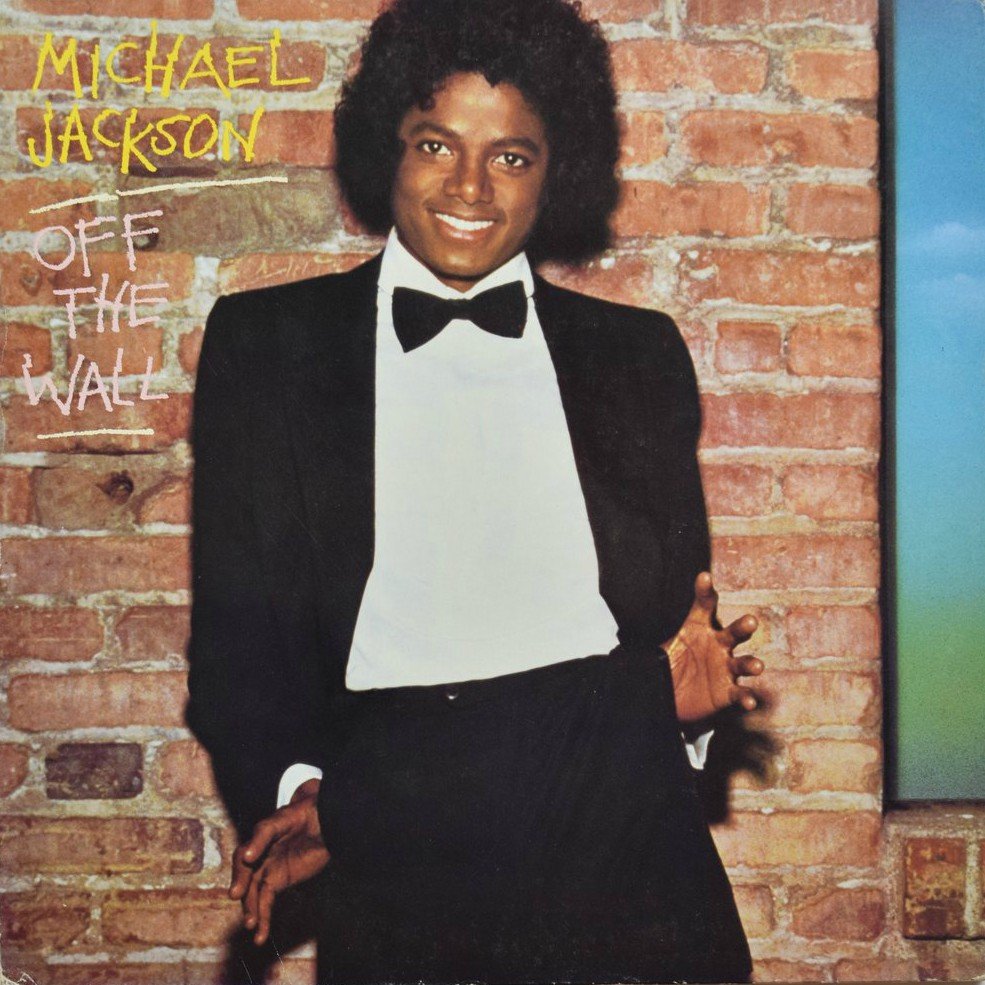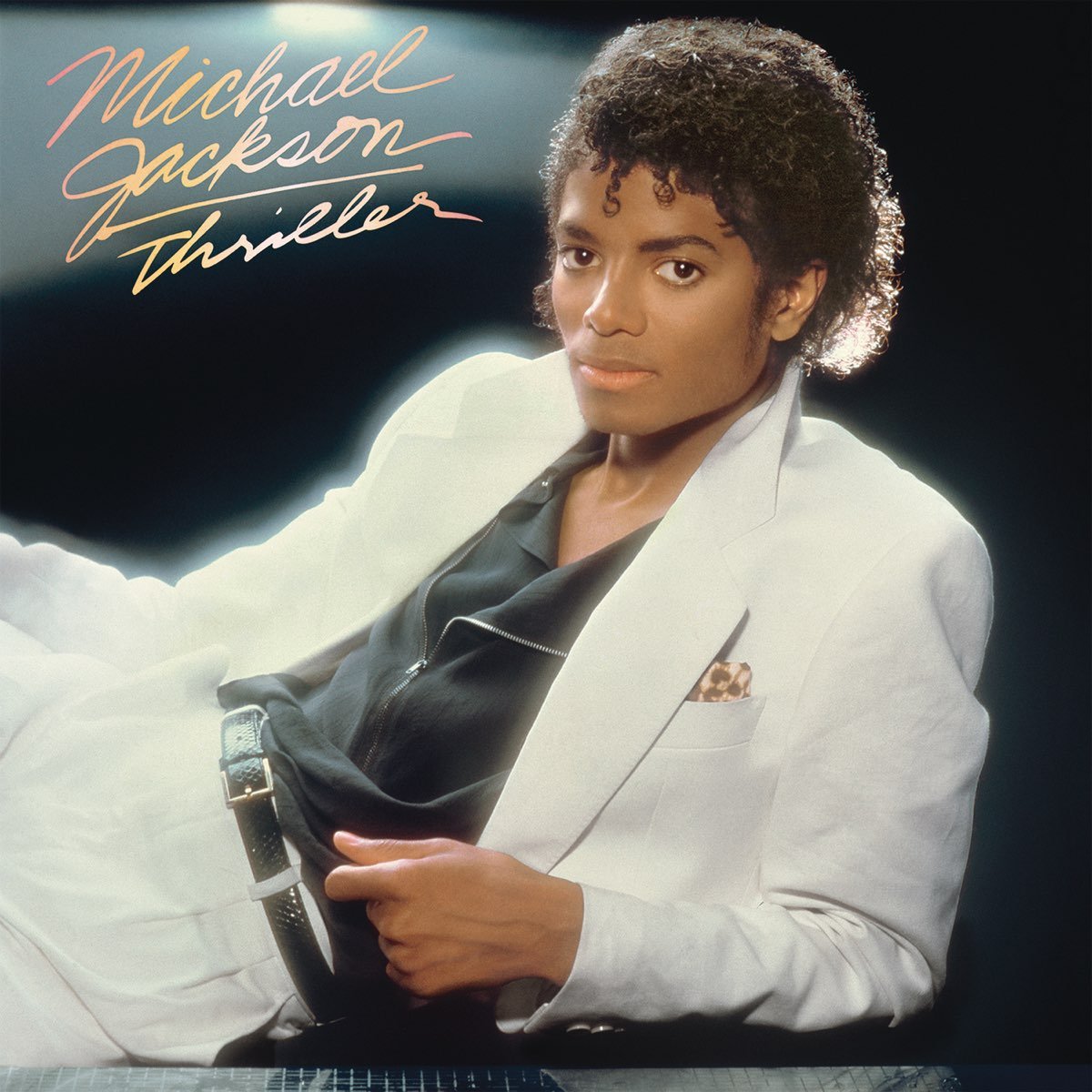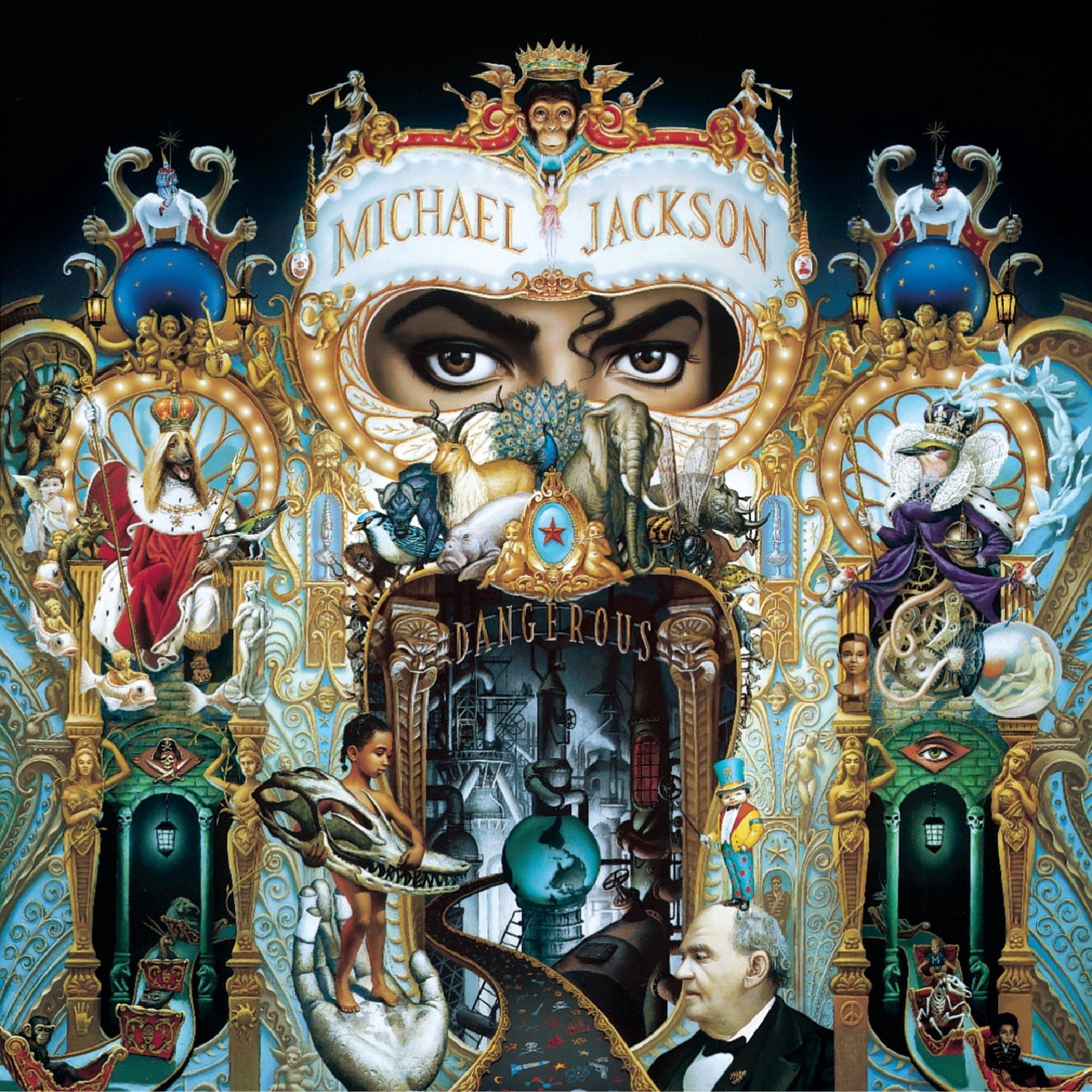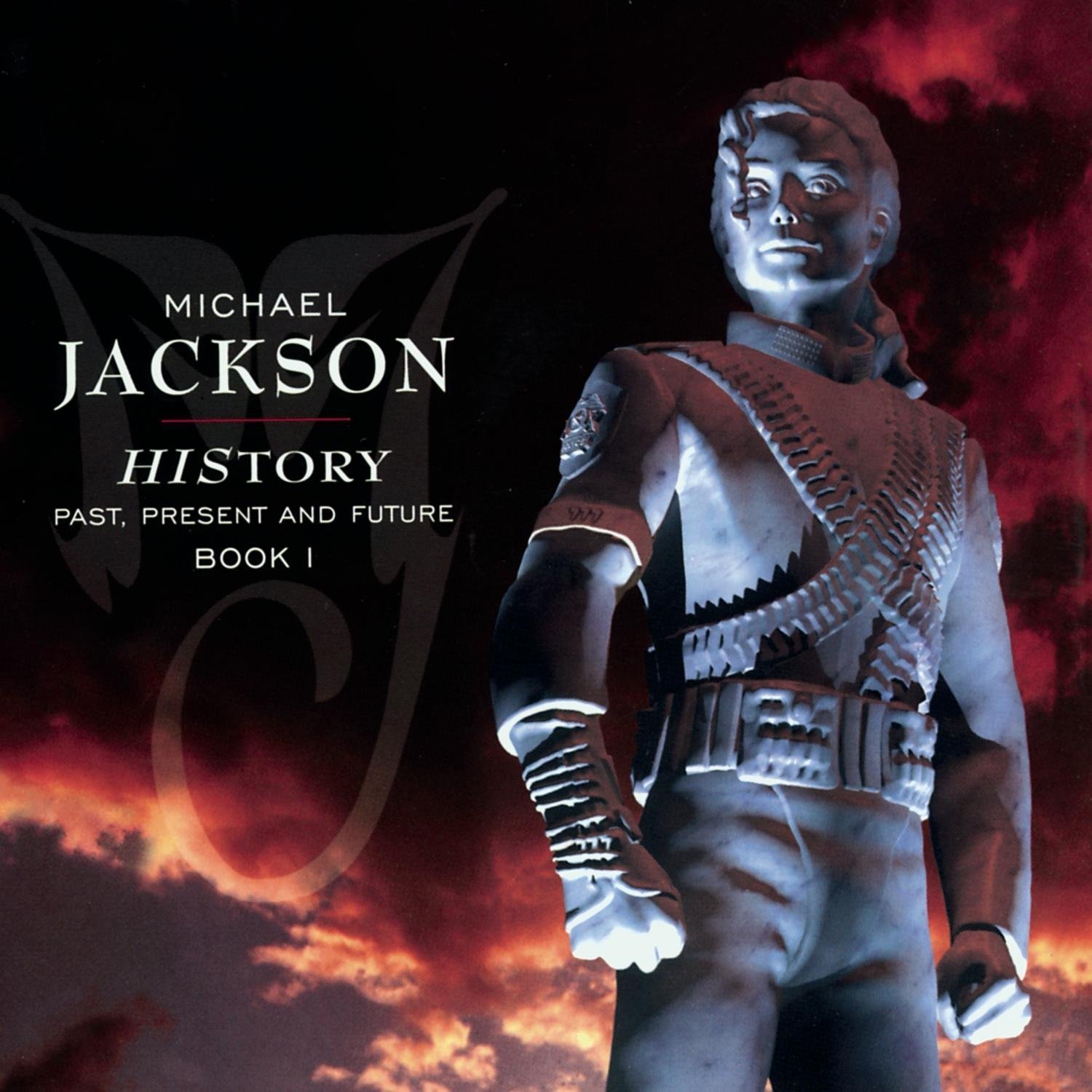Happy 35th Anniversary to Michael Jackson’s seventh studio album Bad, originally released August 31, 1987.
As an Amazon affiliate partner, Albumism earns commissions from qualifying purchases.
How do you top the biggest selling album of all time? How do you top a cultural phenomenon? How do you top yourself?
These were just some of the questions that Michael Jackson faced as he prepared to record the follow up to the global smash that was Thriller (1982).
For Michael, the answer was—as it had always been since the age of 5—to put in the work. To spend hours, days, weeks, months, and years writing, crafting, and perfecting the songs that would eventually form Bad.
But looking to top, match or even exist in the same stratosphere as Thriller was going to be a daunting task.
In the five years since the release of Thriller, Jackson had spent two years riding the crest of that wave, recorded, and toured with his brothers for Victory (1984), developed and starred in the groundbreaking 4D Disney extravaganza Captain EO, and set about writing another landmark album.
For a public eager to celebrate his return and a media banking on the extra column widths a fall from grace could bring, Jackson reteamed with famed producer Quincy Jones to create the final chapter in their creative trifecta of a partnership. As he did with Thriller, Jackson took on more responsibility, writing nine out of the ten tracks, and producing the album alongside Jones. Contrasted to his eager apprentice role on Off The Wall (1979), Jackson was ready to have greater creative control with a distinct vision and sound for Bad that would see him be an equal master of production to Jones.
And so, on August 31, 1987, two days after Jackson’s 29th birthday, the world finally got to hear what he was working on.
And with it we realized anticipation has a sound. And it sounds exactly like the four ascending synth stabs in the opening vamp to “Bad.” As the first notes on the album, that climbing intro mimics the building anticipation of what Michael will deliver and echoes the audience’s expectations for bigger and better things.
Against bristling accents that bubble and brew under a punching bass line, this is Jackson’s response to the speculation about whether or not he could equal—or dare even top—the success of Thriller. From the outset, Jackson throws down the lyrical gauntlet. When he declares, “And the whole world has to answer right now,” it isn’t an overstatement of ego, it’s a declaration of funk. That line alone reflects the challenge and pressure of having to prove himself once more. And he more than rises to the occasion.
Throughout the length of the album, Jackson reminds us why he was such a captivating artist. His penchant for perfectly crafted pop is on full display in the album’s many highlights that demand attention from your ears and cast a spell over your feet.
Take one of Jackson’s catchiest compositions, “The Way You Make Me Feel,” which features flawless vocals delivered with a sense of jubilance that is reminiscent of the finest moments from Off The Wall. With a deep mix of musical layers from jagging synth strings to hot ‘n’ sexy horn blasts and that intoxicating shuffling swing beat, “The Way You Make Me Feel” is a high dose of elastic funk that seems predestined to be a hit.
Like a lot of Jackson’s classic dance numbers, there isn’t so much of a bridge present in the song, but rather the creation of space to let the groove takeover. Stripping everything back to the bare essentials, the song grooves along in the middle eight with just the driving beat and the effervescence of that bouncing bass line to punctuate it.
Watch the Official Videos (Playlist):
Elsewhere on the album, like with the grooving intergalactic jam of “Another Part of Me” with its funk-laden horn blasts, lush layered harmonies and ad-libs and hi-hat pattern hints to the embryonic New Jack Swing sound (that would rise in popularity in the later part of the ‘80s and own much of the musical landscape in the early to mid ‘90s) or the industrial-funk driven foundation that underpins “Speed Demon” with Jackson accenting the groove with his own beatboxing, there is a focus on pushing sound forward.
And on “Speed Demon” there’s also a hint of Jackson subtly broaching issues of prejudice and racism as his antagonist is met by a cop who repeatedly refers to Jackson with the racially loaded, demeaning use of “Boy” in the refrain “Pull over boy and get your ticket right.” At a time when Jackson was being lambasted for living in an altered and far-fetched reality, this was his way of drawing from personal encounters and giving them a broader social context.
Social context and consciousness are at the core of Bad’s tentpole track, the gospel inspired “Man In The Mirror.” Critics might argue that since the song was written by Glen Ballad and Siedah Garrett, this isn’t a true expression of Jackson’s. But by the way he emotionally invests in the song, he transforms it and truly makes it his own.
Pouring himself into every word of the song, Jackson imbues the lyrics with soul, heartache, hope and inspiration all at once. With a swirling build, the way Jackson interprets the lyrics shows true mastery. His vocals are raw and dripping in humanity. The way he twists and climbs the melody to the chorus shifts the song to another level. And when he transitions the song into a drawn-out Gospel call and response the song is filled with spirit. Jackson lays it all out there, taking on the role of both preacher and convert. His impassioned pleas are underscored by the glorious choral backing of the Andre Crouch Choir laying a strong Gospel foundation for him to leap from. Each passing phrase, each ad-lib gives the song energy that vibrates through the speakers and into your heart. Jackson is in his power as a vocalist going from sweet in one phrase to commanding in the next, making for utterly compelling listening.
The same can’t be said for the other non-Jackson penned track, “Just Good Friends,” a rather weak song that pairs Jackson with longtime friend and musical contemporary Stevie Wonder. Hardly a shining moment on Bad, “Just Good Friends” is a curious inclusion for these two powerhouse performers and these two greats deserved a better song than this (and later got it on the Stevie penned “Get It” from his Characters album.) It’s fair to say that compared to what else is included on the album, this is Bad’s only weak spot.
But sometimes you need the valleys to make the peaks that much more breathtaking, as is the case with the cinematic and lush “Liberian Girl.” An unexpected ballad that is smooth and seductive, Jackson’s legato vocal performance is amongst his finest, showcasing a sense of power and control. For all the talk of Jackson being overly calculated in his compositions and only pursuing hits, “Liberian Girl” flies in the face of that argument. Here, Michael is exploring sounds to provide a more filmic backdrop for his lyrics, and his choices are anything but conventional. His deliberate selection of sounds and instruments from pan pipes to spiraling sitars to enchanting chimes help create a distinct sound for the track with instrumentation not usually enlisted for mainstream pop fare.
And the way Jackson uses phrasing, and a range of mid and high notes, is a master class in eliciting emotion. Recorded as 16 tracks of harmonies (known on the project affectionately as “the Michael Choir”), the way he layers them provides even greater richness to the track. Just listen to the range contained in the harmonies that support the ad-libs in the final minute of the track ranging from touch-the-sky highs to soothing lows. In stark contrast to today’s cut-and-paste recordings, these vocals weren’t duplicated for each pass, nor were they duplicated for each chorus, instead Jackson sang each part in place throughout the entirety of the song. The fact that there is very little audible difference between the first chorus and the last shows his mastery as a vocalist.
The other love song moment on the album is the touching ear worm of “I Just Can’t Stop Loving You.” Dispensing with the heavily electronic sound of the rest of Bad, “I Just Can’t Stop Loving You” is a song lush with organic instrumentation. A masterful pop ballad that brims with romance, the song lifts at the chorus. There is a shimmery brightness to the production that glistens without being too glossy. Jackson’s vocals range from impassioned, to aching, and sung in his more natural register gather in confidence from the bridge onwards, as he lets loose with joyful ad-libs. Duetting with new discovery Siedah Garret, Jackson and Garret’s voices blend to the point that on first blanche you’re not one hundred percent sure who is singing which line or not.
“I Just Can’t Stop Loving You” remains a lasting reminder of Jackson’s ability to craft beautiful arrangements where both bold, brash timpani strokes can be matched by sharp finger snaps. He proves that as a songwriter, he could hold his own no matter the genre and write timeless melodies and lyrics like the greats of Davis & Bacharach.
Enjoying this article? Click/tap on the album covers to explore more about Michael Jackson:
Following on from the runaway success of “Beat It,” Jackson continued to explore his affinity for rock with a tale of life on the road and the persistent advances of groupies in the blistering grit of “Dirty Diana.” Whereas in the past, songs like “Billie Jean” and “This Place Hotel” had Jackson playing victim to his world of seductress/femme-fatale characters, “Dirty Diana” evolves the narrative to a place where Jackson is now a willing, if not remorseful, participant.
Underpinning this is a brooding musical setting. There’s a foreboding, dark presence in the spatial synth beds, the rattlesnake hi-hats, the biting rim shots, and the cracking whip snare. Guest guitarist Steve Stevens (of Billy Idol fame) is given room to play throughout the song, rather than just a “solo” moment and the song benefits from it giving the track a consistent raw, gritty edge.
As he had done elsewhere on the album, Jackson increasingly uses sound design to create dimension and a cinematic expression of his sound. Perhaps nowhere else is this sharp in focus as on the album closer, “Smooth Criminal” with panicked breathing, quickening heartbeats, sirens, and bullhorn directives. Here Jackson creates a scene that is all classic film noir—dark, menacing and threatening. The urgency in the jittery bass line almost acts as the musical menace in the song. It’s stalking; at once creeping and chasing and the punch it adds forms the foundation for Jackson’s staccato vocal delivery and allows for the progression of the narrative to feel desperate and almost panicked.
Based on subject matter alone, “Smooth Criminal” was an unlikely hit. But the way Jackson uses the music to create an irresistible hook has the listener enjoying the track long before stepping back to consider the darker consequences of the lyrics. With its powerful punch, “Smooth Criminal” was the perfect album closer for Bad, leaving the listener filled with energy and wanting more.
And in a relatively new approach, that desire for more was satiated in the CD edition of the album with a bonus track that held one of his catchiest compositions. Built around a jingle-jangle jazz inspired counterplay, “Leave Me Alone” has Jackson seemingly more relaxed in his vocals, bringing back some of the unbounded joy of earlier career recordings. “Leave Me Alone” does what all great Michael Jackson tracks do—it presents him in a new light, surprises the listener, and has a timeless quality to it. It’s no wonder that it continues to be a fan favorite long after it was pulled from the reserve bench and given a moment to shine.
And shine is something Bad does time and time again. Given the unrealistic task of following Thriller, Bad not only meets the challenge, but in many instances surpasses it. And while its sales of 30+ million are impressive in their own right, Bad didn’t outsell Thriller. But then nothing ever has.
What Bad did achieve was its delivery of an unprecedented run of five consecutive #1 hit singles and a slew of short movies that became instant classics. It also showcased an artist continuing to grow and build on his creative trajectory.
As an Amazon affiliate partner, Albumism earns commissions from qualifying purchases.
LISTEN:





